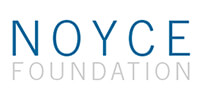ACRES is for educators who serve youth in programs such as Boys and Girls Clubs, Scouts, YMCAs, afterschool programs, robotics programs, science olympiad, teen centers, local library programs, science centers, museums, summer camps and more. As you consider participating, be sure you:
There are many ways you can partner with the ACRES project. State afterschool or library networks can get involved by inviting us to present at a conference, encouraging educators to participate as individuals, or starting a cohort for the state. ACRES can also train network leaders to coach their state’s afterschool educators.
Over the course of an ACRES module, you’ll participate in 3 live video conferencing sessions – these are interactive and engaging discussions with other educators and a coach. Participants receive handouts, including a list of easy-to-find materials needed for hands-on experiences ahead of time. Between sessions, you’ll practice the skills and record a short clip of yourself working with youth. You’ll then meet with your cohort to share insights and coaching aligned to the skill you are practicing. You can participate in as many of our modules as you’d like.
There are 8 ACRES modules to pick from, and each of them helps you develop a certain skill. Every ACRES participant starts with Asking Purposeful Questions*. After you complete Asking Purposeful Questions, you can join any of the other 7 modules as you are interested.
Each module includes three 2-hour active sessions over Zoom video conference. These sessions are usually scheduled between two to four weeks apart. Between each session, you will likely spend about 3 hours practicing the skill and recording a video or audio clip of your practice. In total, you can plan for approximately 6 hours connecting with your coach and cohort, and 6 hours of practice embedded in what you already do!
Before each session, your coach will send you a link that will connect you to the video conference. You will use the Zoom platform for every meeting. Clicking the link will connect you to the meeting without needing a username or password. For more information about the platform, visit www.zoom.us. To test your audio or video ahead of time, visit, www.zoom.us/test
The video conferencing software (Zoom) allows attendees to leave their cameras off while connected. A small icon will appear on the screen representing “you.” Bear in mind that this is a bit tough on your colleagues, because they will want to get to know you, and it’s easier if you can see each other.
We find that clips between 3-4 minutes long are ideal for the coaching session. If you already know which part of the activity you want to record, you can just turn your camera on and off to capture a few minutes of that part. Or you can record for a longer period of time and then use the video editing tools built into your phone or laptop to select a clip you want to share.
Because the videos will not be made public, but used as part of an educational coaching program to help providers improve their skills, media releases are not required. The ACRES project provides a courtesy letter to the parent/guardian, outlining how videos will be used, and giving ways to contact the project researchers if there are questions or concerns.
You probably already have what you need, as you can use a phone, tablet, or laptop webcam for recording videos. If you don’t have these available, ACRES will help you to borrow one.
You probably won’t need to buy anything. ACRES modules use easy to find materials that people often have on hand. The materials are easily adapted to fit whatever supplies people have available. The modules’ emphasize skills and not perfecting a specific activity with set materials.
No. Although the experience is virtual, you are joining a community of educators in real time. Thus, it is important for all members to be present at virtual meetings to build a trusting, coaching relationship. It is essential that you are present to experience learning the skill and to collaborate with others. If an emergency comes up, please contact your coach as soon as possible.
Thanks to the generous funding of The National Science Foundation, ACRES (a $250 value per module) is currently offered at no cost to participants.
This material is based upon work supported by the National Science Foundation under Grants No. DRL 17131341 and DRL 2115229, as well as the Noyce Foundation, the STEM Next Opportunity Fund, and the Davis Family Foundation.
Any opinions, findings, and conclusions or recommendations expressed in this material are those of the author(s) and do not necessarily reflect the views of the funders listed above.


Subscribe for updates and resources.
Your feedback will help us make improvements to the system that will benefit future educators.
Except where otherwise noted, ACRES modules and resources are licensed under a Creative Commons Attribution-NonCommercial-ShareAlike 4.0 International License.
This means, you are free to share and adapt the ACRES resources, under the following terms:
Attribution — You must give appropriate credit, provide a link to the license, and indicate if changes were made. You may do so in any reasonable manner, but not in any way that suggests the licensor endorses you or your use.
NonCommercial — You may not use the material for commercial purposes.
ShareAlike — If you remix, transform, or build upon the material, you must distribute your contributions under the same license as the original.
Maine Mathematics and Science Alliance
343 Water Street, Augusta, ME 04330

